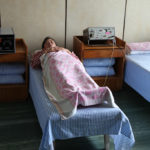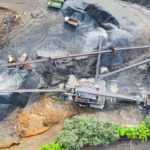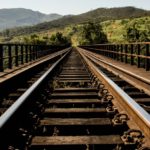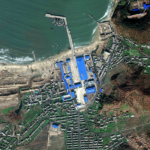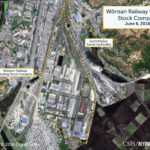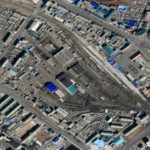March 17, 2021, by Joseph S. Bermudez Jr., Victor Cha, Marie DuMond, Jonathan E. Hillman and Maesea McCalpin—
Although significant political barriers remain to reconnecting the Korean peninsula, there is merit in substantive study of the types of energy infrastructure connections that would best promote regional growth and stability. The cases examined in this report underscore North Korea’s dire need for energy infrastructure investment and the importance of it meeting the G20 quality infrastructure investment principles.
May 4, 2020, by Joseph S. Bermudez Jr. and Marie DuMond—
Widely considered as a midterm referendum on President Moon, the April electoral victory will breathe new life into his administration’s heretofore stalled diplomatic efforts with North Korea, a key pillar of which is inter-Korean railway cooperation. In the context of South Korea's renewed efforts in inter-Korean railway cooperation, Beyond Parallel reviews the railway connections of the Korean peninsula.
February 5, 2020, by Victor Cha and Marie DuMond—
Reports of the novel coronavirus 2019-nCoV spreading to regions bordering North Korea could pose a real risk to the North Korean people. Policy debates on North Korea tend to underestimate health as one of the regime’s key vulnerabilities. North Korea’s insecurities about its health system have been evident in its draconian responses to past pandemics including SARS (2002-2003), Middle East respiratory syndrome [MERS] (2012), and Ebola (2018).
November 19, 2019, by Joseph S. Bermudez Jr. and Marie DuMond—
Antiquated facilities, equipment, and processes, together with the continual plague of electricity shortages, will hinder any dramatic production increases of magnesite at North Korea's Taehung Youth Hero Mine... The Taehung Youth Hero Mine "has established the Juche orientation in the production of fireproof…
January 7, 2019, by Victor Cha, Joseph S. Bermudez Jr. and Marie DuMond—
Should inter-Korean cooperation result in the re-connection of the railways in North and South Korea, the rail networks of the Korean peninsula could then be integrated into a rail network spanning the Eurasian continent through China and Russia. If actualized, this would mark a significant diplomatic and geopolitical accomplishment for the Korean peninsula. Nonetheless, a long and significant modernization process will need to take place to fully integrate the systems in a commercially viable way.
December 10, 2018, by Victor Cha, Joseph S. Bermudez Jr. and Marie DuMond—
North and South Korea are moving forward with inter-Korean railway cooperation as a key engine for advancing inter-Korean reconciliation and building the infrastructure for eventual unification. Once connected, however, a significant modernization and harmonization process will need to take place to fully integrate the systems in a commercially viable way.
September 19, 2018, by Joseph S. Bermudez Jr. and Marie DuMond—
Enforcement of international sanctions on North Korean seafood should be expected, therefore, to have an impact on both North Korea’s baseline fisheries earnings and the expected future return on the regime’s investment of resources and strategic effort in this modernization project.
July 9, 2018, by Victor Cha, Joseph S. Bermudez Jr. and Marie DuMond—
Commercial satellite imagery shows that the Wonsan Railway Rolling Stock Complex is currently active and appears to be well maintained by North Korean standards. In addition to its production and repair responsibilities, the complex serves as a center for North Korean railroad technical research and development.
June 8, 2018, by Victor Cha and Marie DuMond—
With the Singapore Summit between Donald Trump and Kim Jong-un on June 12, there is bound to be references made by the North Korean leader to the need to end U.S. “hostile policy” as a precondition for denuclearization. However, CSIS Beyond Parallel research shows that North Korean citizens do not hold uniformly negative impressions of the United States, contrary to the statements of North Korean leaders. A study commissioned by Beyond Parallel of North Koreans currently living inside the country found 68% North Korean respondents do not see the United States as North Korea's enemy.
May 22, 2018, by Joseph S. Bermudez Jr., Victor Cha and Marie DuMond—
Chongjin Railway Factory is one of three major railway manufacturing facilities in North Korea's eastern corridor. Analysis of this facility can be a brick-and-mortar sign-post of foundational infrastructure progress if the trust-building project of reconnecting the Koreas' railways is carried out.



